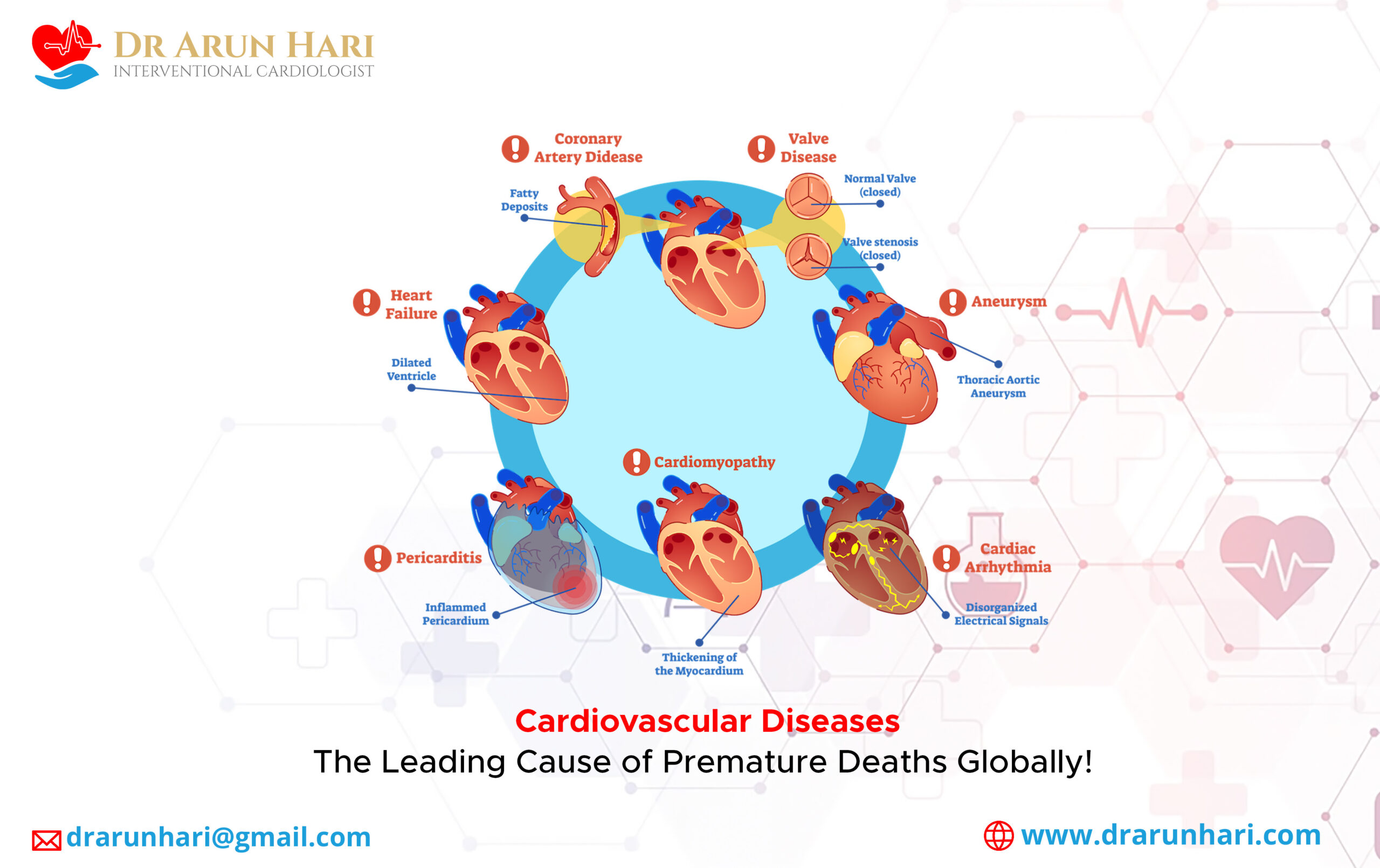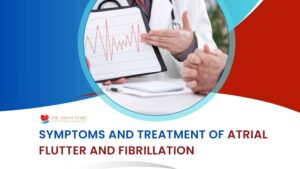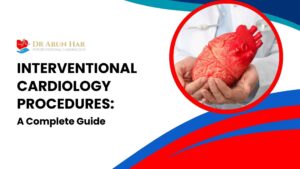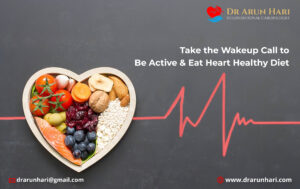How To Reduce Your Risks To Avoid Developing Fatal Cardiovascular Diseases?
The Most Prevalent Types of Cardiovascular Diseases in the General Population!
Warning Symptoms of Heart Attacks & Stroke!
Cardiovascular diseases are the leading cause of the ever-increasing number of premature deaths occurring each year globally. In fact, they are responsible for more than 17 million deaths every year. That is nearly one-third of all premature deaths worldwide. There are many risk factors for developing cardiovascular diseases that include high blood pressure, high cholesterol, diabetes, and smoking.
How To Reduce Your Risks To Avoid Developing Fatal Cardiovascular Diseases?
The good news is that there are also many things you can do to reduce your chances of getting any cardiovascular disease as below:
- You can control your high blood pressure by eating a healthy diet, avoiding salty and oily foods, exercising regularly, and not to forget avoiding tobacco use.
- You can keep your cholesterol numbers in check by simply making a switch to foods that are low on unsaturated fats and bad cholesterol that may put you at increased risk for cardiovascular diseases.
- You can also reduce your risk of developing diabetes by simply maintaining a healthy weight with close monitoring of your diet and exercise, eating a healthy diet, and also by keeping a stringent control on your elevated blood sugar levels.
By making these simple lifestyle modifications, you can very efficiently and significantly reduce your risk for cardiovascular diseases. So make the commitment today to live a healthier life.
The Most Prevalent Types of Cardiovascular Diseases in the General Population!
There are many different types of cardiovascular diseases, but some are more common than others. Here are the most common types of cardiovascular diseases prevalent amongst general population:
- Coronary Heart Disease: This is the most common type of cardiovascular disease. It occurs when the arteries that supply blood to the heart muscle become narrow and blocked leading to an untimely heart attack and even death.
- Cerebrovascular Disease: This type of cardiovascular disease occurs when the blood vessels that supply blood to the brain become narrow and blocked. This can lead to a stroke.
- Congenital Heart Disease: This type of cardiovascular disease is present at birth. It occurs when the heart and blood vessels do not develop properly.
- Peripheral Artery Disease: This type of cardiovascular disease occurs when the arteries that supply blood to the legs and feet become narrow and blocked. This can lead to pain and cramping in the legs and feet.
- Deep Vein Thrombosis And Pulmonary Embolism: These are two types of cardiovascular disease that occur when blood clots form in the veins. These can be dangerous if the clot breaks off and travels to the lungs.
- Rheumatic Heart Disease: This type of cardiovascular disease occurs when the heart valves become damaged severely deteriorating the heart function and ultimately causing a heart attack.
Warning Symptoms of Heart Attacks & Stroke!
Heart attacks are a rare but sudden event which catches you off-guard. Though it starts slowly, they are usually accompanied by chest pain that is really agonizing. That’s when you need to remain alert. These symptoms must be dealt with on priority as they involve your heart, and any unforeseen delays might cost you dearly in terms of your health and also pose a great risk to your life. Here are some signs and symptoms that point towards a heart attack or stroke is happening:
- Chest Pain Or Discomfort: This can feel like pressure, squeezing sensation or tightness in the chest, and pain.
- Discomfort In Other Areas Of The Upper Body: This includes pain or discomfort in one or both arms, the back, neck, jaw or stomach.
- Shortness of Breath: This may occur with or without chest discomfort.
- Excessive Sweating: Abruptly breaking out in a cold sweat.
- Primary Symptoms: Nausea, vomiting, lightheadedness, and/or dizziness.
- Severe Symptoms: Sudden loss of vision, sudden confusion or trouble speaking, and/or sudden weakness or numbness in the face, arms or legs.
Dr. Arun – A Highly Experienced Specialist Well Known For His Skills In Treating All Types of Cardiovascular Diseases With Great Success!
If you or someone you know is experiencing chest pain, shortness of breath, or an irregular heartbeat, it could be a telltale warning sign of a heart attack or stroke. Prompt medical attention must be sought in both of these critical situations, and you can certainly rely on the experience and expertise of Dr. Arun who is a board certified interventional cardiologist highly experienced in treating patients with all types of cardiovascular diseases with extreme success.





